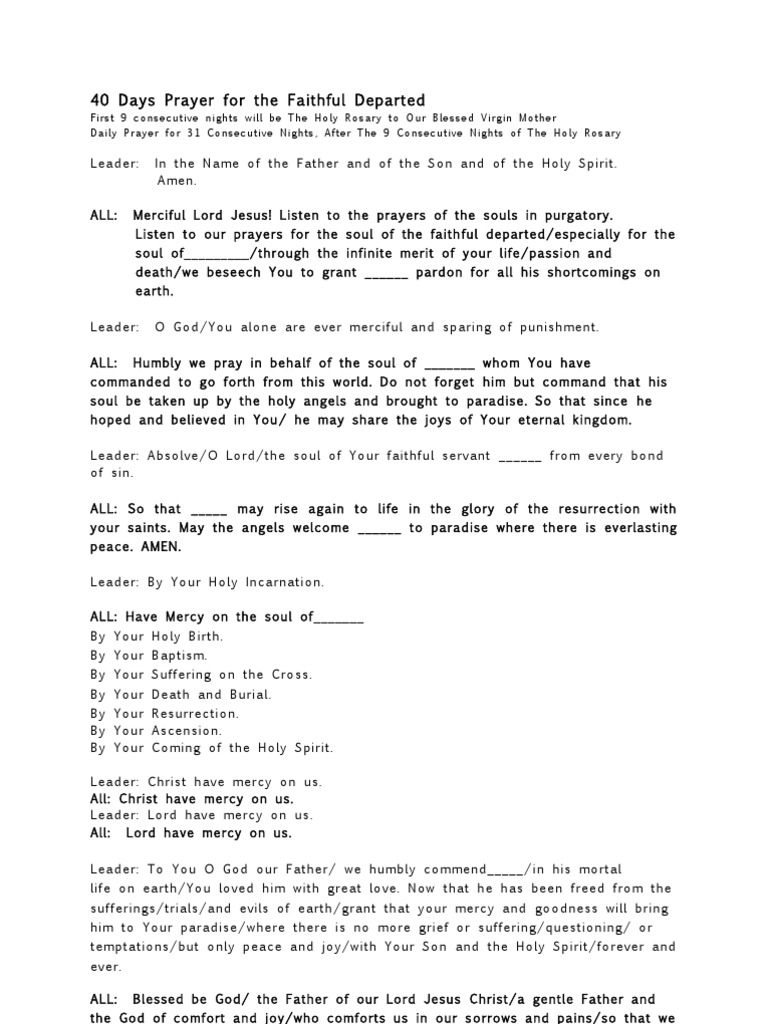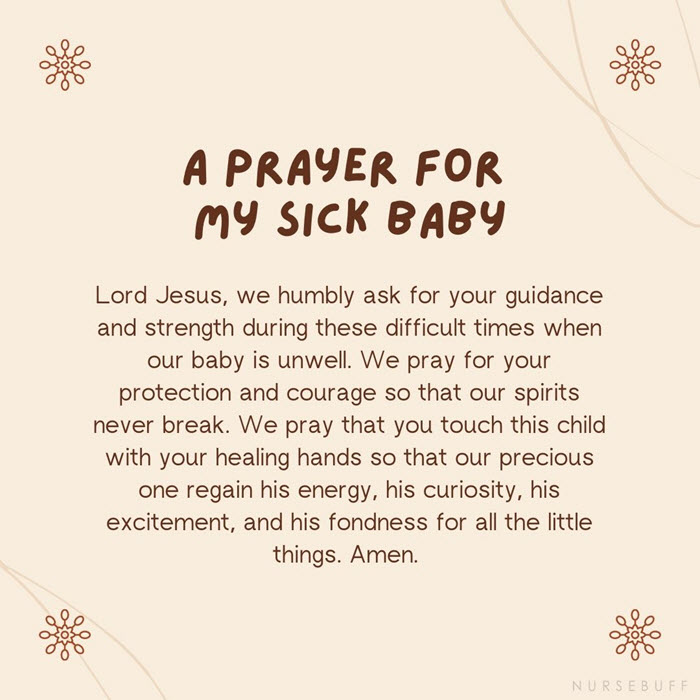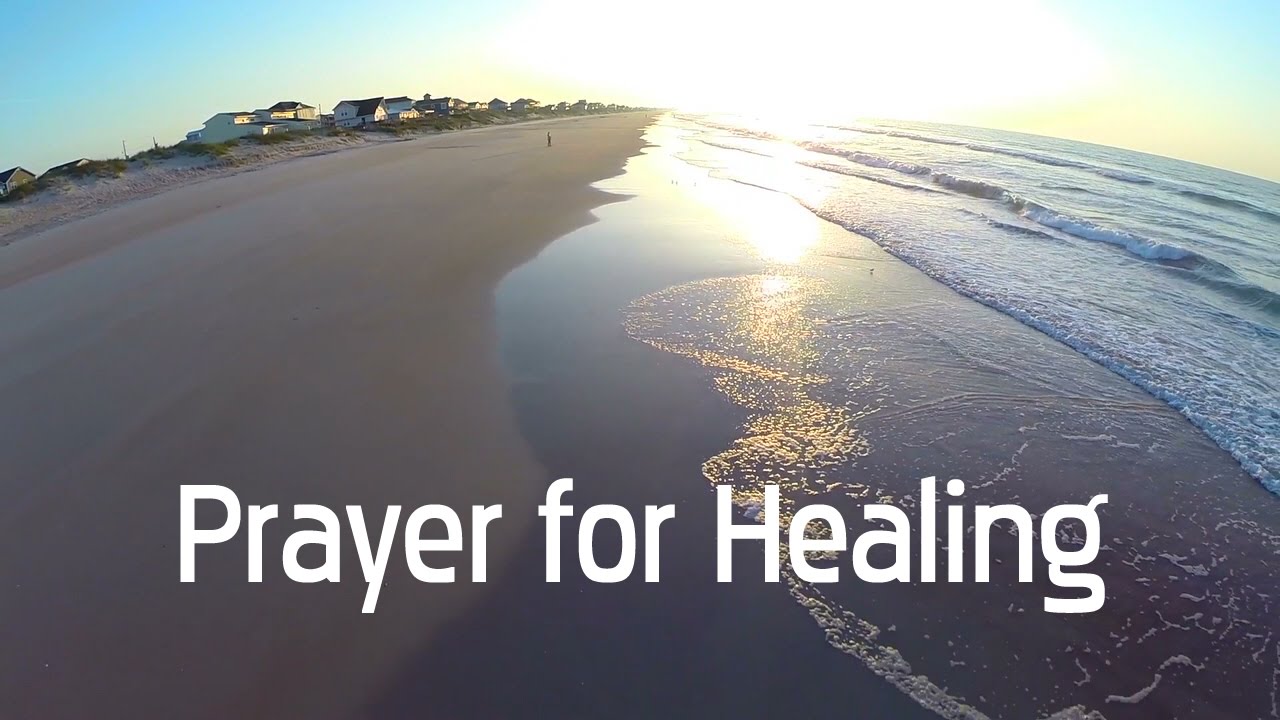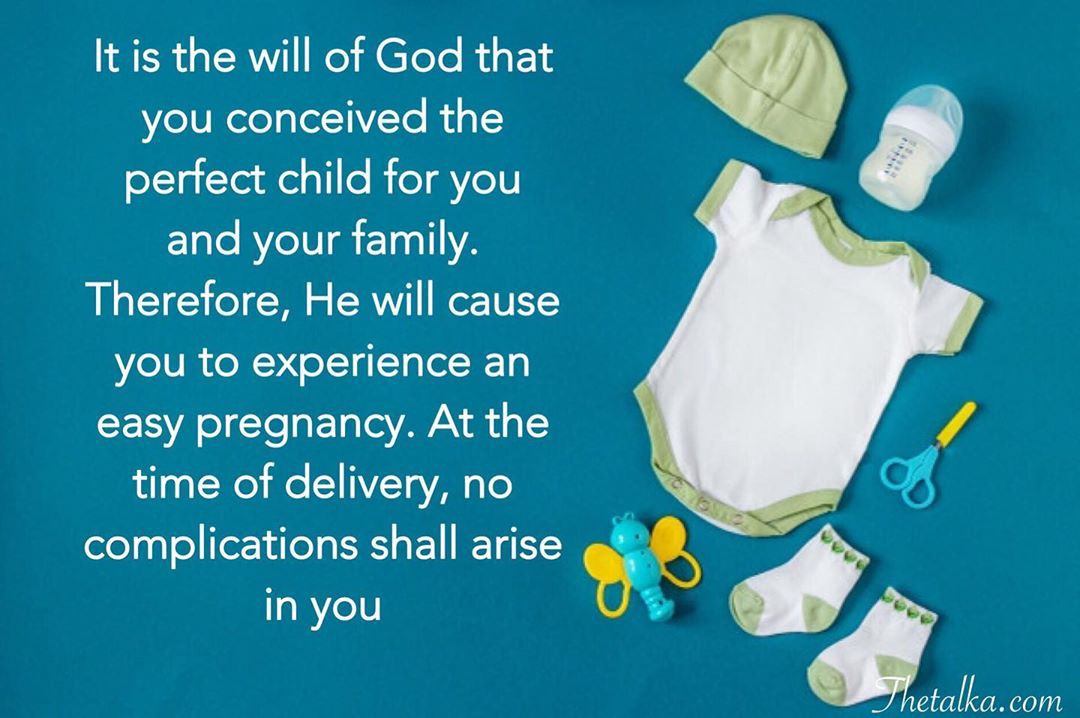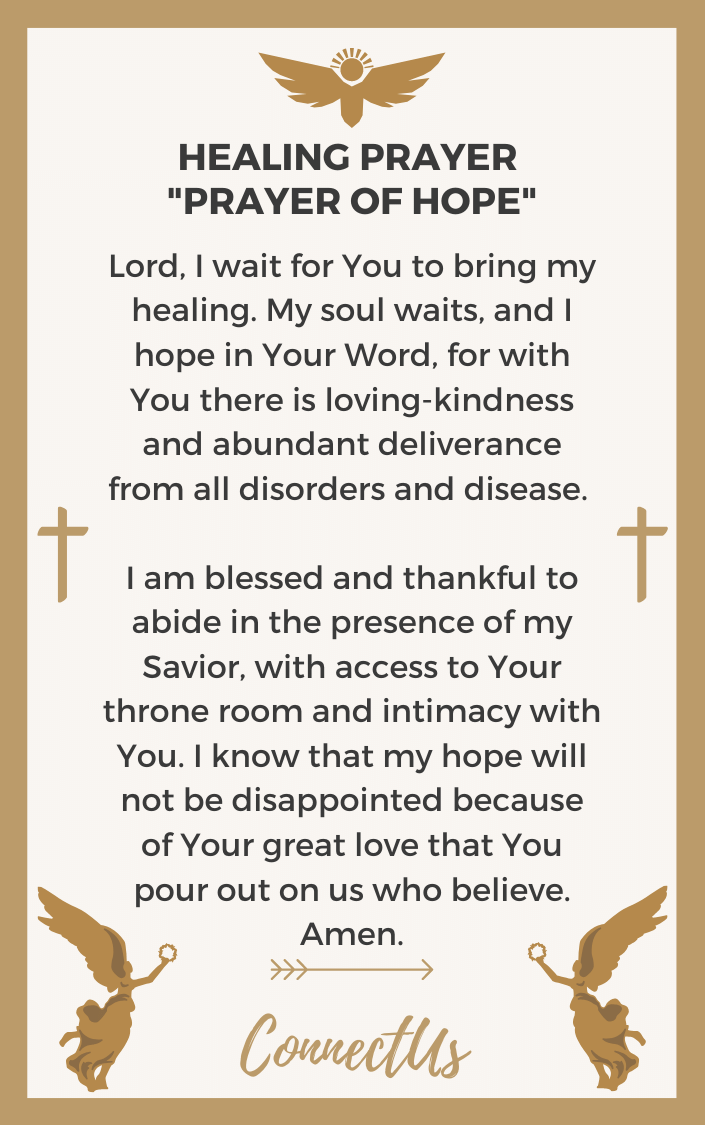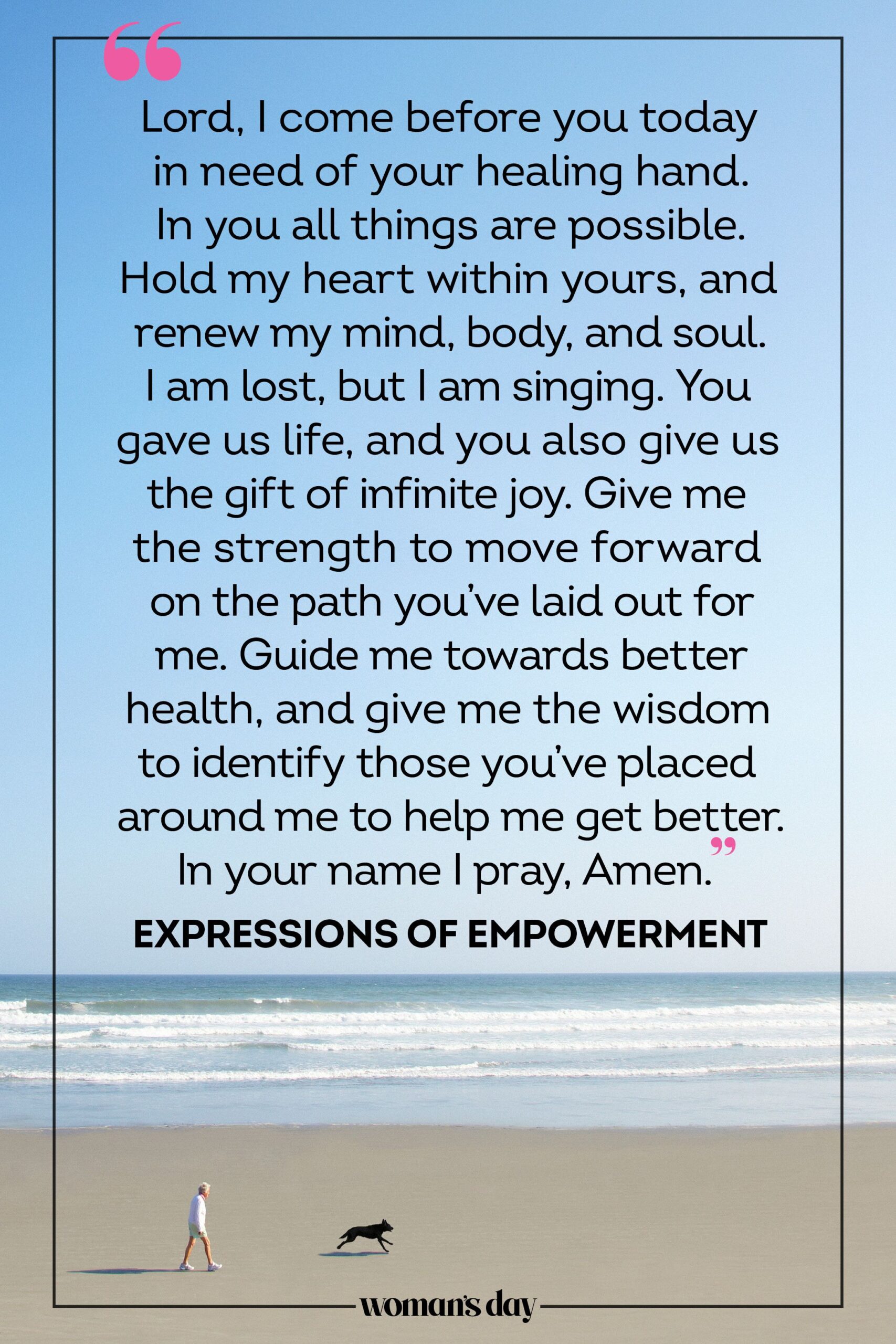The 40th Day Prayer For the Dead
This article will give you a better understanding of the meaning and traditions of the 40th Day Prayer for the Dead. You will also learn about the Trisagion Service and the Bread and water ceremony. After reading this article, you’ll feel more comfortable performing this service for loved ones. Here’s a PDF version of this prayer. The PDF includes a complete guide on how to do it. You can download it from this page.
Traditions
Eastern Orthodox believers have a strict set of traditions regarding the dead. These include a ritual that requires memorial prayers to be offered on certain days. They also hold annual memorials for the deceased. Russian Orthodox traditions speak of aerial toll houses, evil spirits, and the soul wrestling its way to eternal rest. This day is also a day of prayers and meals. Here are a few traditions related to the 40th-day prayer for the dead.
On the 40th day, the dead’s soul will wander between heaven and earth. After forty days, the soul will leave the body and never return to it. On the day of the prayer, the family may visit the gravesite and remove the funeral wreaths from the grave. This ritual will cleanse the soul and help it find eternal peace. The family is encouraged to leave some money for the priest to serve as a prayer leader during the service.
Not every culture practices a continuous mourning period after the death. Some pagan traditions believe that a soul wanders the earth for 40 days after death. Although forty seems large, it is usually an ambiguous number and can represent a period of trial, expectation, or waiting. These practices may vary from culture to culture, but they are a common part of post-funeral rituals.
While fasting isn’t mandatory, it is highly recommended during the 40th day after death. Likewise, people who were close to the deceased are encouraged to attend church services for the funeral. During the funeral service, many will stand beside lit candles. Lit candles symbolize the belief that the dead will live on in the spiritual world. In addition, if the candles are extinguished, it signifies the sudden end of their earthly existence.
Meaning
The meaning of the 40th day prayer for the dead varies for each religion, but in general, this period after death is considered an important time for the soul. This is because this is the day when the soul returns to earth. Before this happens, the soul must go through hell, where it will witness the torments of sinners. After forty days, the soul will appear before God, and He will decide where it should go. During this time, many families will hold a celebration, and remembrance service.
The soul of the deceased goes through a forty-day toll-house journey between Heaven and Hell, and until this day, it is unable to find a final home. In other traditions, the soul spends the fortyth day in limbo, wandering from place to place, unknowing of where it will go. On the fortyth day, the soul finally finds a place of rest. For this reason, it is important to pay homage to the deceased on the 40th day.
In the Orthodox tradition, the deceased person’s items are distributed among family and friends, and people are urged to pray for the soul of the deceased. At the same time, it is a custom to stand with lit candles during this service, as this demonstrates one’s belief that there is life after death. The act of extinguishing a candle signifies the end of earthly existence.
The meaning of the 40th day prayer for the dead is to assist the soul in a peaceful transition to heaven. This is done through an important prayer ritual that is performed by Christians and Native Americans. People who participate in this novena must honor nine angelic ranks, including Michael, Gabriel, and Zadkiel. During this ceremony, relatives are supposed to perform a wake and a prayer for repose at the Temple of the dead. These ceremonies help the deceased’s soul go through the trials of heaven with God.
Trisagion Service
The 40th Day Prayer For The Dead is a traditional Jewish prayer that is said to the soul of a deceased loved one. Many Jews say this prayer for the deceased before the Jewish holiday of Yom Kippur, which falls on the 10th day of Tishrei, the seventh month in the Hebrew calendar. In this prayer, we ask God to forgive our sins and express our love for the dead. This PDF has both an English and Hebrew translation of the prayer.
In Eastern Orthodox religions, the 40th day is a time for judgment before God. According to these beliefs, the soul passes through the aerial realm where evil spirits try to drag it to hell. In this time, the soul must make amends for the sins that have caused it to become separated from its creator. The 40th day is the day on which the soul finds its final destination. To mark this day, a family gathers to celebrate the life of the departed.
Bread and water
The Roman Catholic Church does not have an ecumenical dogma for the 40th Day Prayer for the Dead, but many Eastern Catholic and Orthodox churches believe that the soul of the dead remains on Earth for forty days after death. On days three, eight, and nine, the soul is shown what it will experience in Paradise and Hell, and on the fortieth day, it is brought before the throne of God to be told where it is going until the end of time.
In Russia, the day is observed for a variety of reasons. A traditional memorial service and family gathering are held on the 40th day after death. This is a time to remember the deceased and honor the deceased’s life. A prayer is traditionally held before the meal. A special wheat and fruit dish called kolyva is served as a tribute to the departed. Bread and water are also given to the family to remember the deceased.
The Eastern Orthodox Church uses a 40th-day memorial framework, which is derived from pagan traditions in Russia. This memorial time allows the soul to pass before God and face judgment for its actions on earth. During this period, evil spirits will try to drag the soul into hell. On the fortieth day, the soul will be judged and rewarded for the sins it committed on earth.
When to pray
The novena prayer, also called the fortieth day novena, is a common Catholic ritual. It is meant to assist the soul of a recently departed loved one into eternal rest. It can be said on the actual day of the novena, or five times a week between the first Sunday after the death and the 40th day of the novena. When to pray for the dead on the 40th day depends on the individual.
Traditionally, Orthodox families should have a Diptich, a yearly update of the deceased’s name. During this time, the deceased’s name is written on the diptich. A priest is required to read a prayer on the fortieth day after death. If a person has committed suicide, a priest is required to bless the prayer. It is also forbidden to pray for a suicide victim if a note is filed.
After death, the soul wanders the earth for forty days, stopping at significant places where the deceased lived and then returning to their fresh grave. Afterwards, the soul departs the body and enters the afterlife. For this reason, families often hold a 40th day celebration, which includes prayers and food. In some cultures, families have a traditional ritual to give their loved one a final farewell.
When to pray for the dead on the fortieth day? According to the Christian calendar, the dead’s soul is assigned a decent place on earth and receives relief from its grief. The soul also wanders over the earth and hovers around the coffin. It is not known when to pray for the dead on the fortieth day, but there is an established tradition. The 40th day is an important date in Catholic life.
